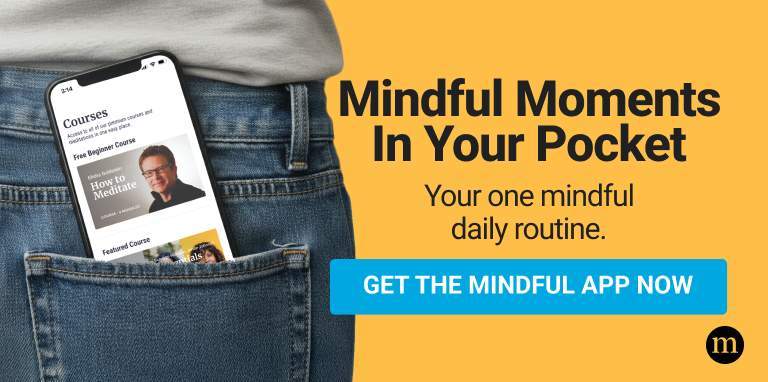Habits are hard to break. Increasingly so when today’s world includes modern marvels such as cigarette additives, refined sugar and the endless ‘to do’ list.
Can we use recent advances in what we know about the brain to hack this habit system, so that instead of frustratingly failing, we use the science of habit formation to flip the script?
Let’s start with the science of addiction. Drugs like nicotine hijack the reward-based learning system in our brains. This system involves a trigger (for example, being hungry), followed by a behavior (eating food) and a reward (feeling sated). We want to do more of the things that feel good and less of the things that feel bad. That’s how our brains are wired.
In essence, reward-based learning has three components: a trigger, behavior and reward. Reward-based learning shows up every time we eat a cupcake or check our email or newsfeed when we’re stressed. Each time we reach out for something to soothe ourselves, we reinforce the learning, to the point where it becomes automatic and habitual.
The brain networks associated with self-control (e.g. the prefrontal cortex) are the first structures to go “offline” when faced with consummatory triggers such as stress.
Our poor brains, which simply want to help us find food, are outwitted and outpaced: the brain networks associated with self-control (e.g. the prefrontal cortex) are the first structures to go “offline” when faced with consummatory triggers such as stress. We’ve all experienced this to some degree: we’re much more likely to yell at a family member or dive into the freezer in search of ice cream when we are stressed or tired. This is so common that there is an acronym that I teach my patients to help them be on the lookout for times where they are vulnerable to stress: HALT. When they’re Hungry, Angry, Lonely and/or Tired, they are in danger of slipping into habit mode.
Self-control has missed something critical: reward-based learning is based on rewards, not behaviors. As in, how rewarding a behavior is drives the likelihood of repeating that behavior in the future.
A subcomponent of the prefrontal cortex, named the orbitofrontal cortex stores relative reward value for behaviors, against which future behavior is compared. I think of this as the BBO region of the brain. It’s always looking for that bigger better offer – the “BBO”.
The “Reward Scale” In Your Brain
For example, if I were to eat a piece of milk chocolate, the relative reward value of its taste, texture, satisfaction and so on gets stored in my orbitofrontal cortex. If I were to eat a piece of 70% dark chocolate (with sea salt) at a later date, my orbitofrontal cortex would then compare the two experiences, and lay down a relative reward value: for me the 70% dark chocolate experience is more rewarding than that of the milk chocolate. It is the BBO. Thus, when given a choice, I pick dark. Every time.
Modern food engineers take advantage of “relative rewards” in the battle for our stomachs. By adding progressively more sugar, fat or salt to foods, they’re looking to create foods that register in the orbitofrontal cortex as a bigger, better offer.
There’s a trick to this: manipulating the orbitofrontal cortex is much easier to do when we’re not paying attention. Read that again. Our brain’s reward center is much easier to hack if we’re not paying attention. If I’m on autopilot and mindlessly eating chocolate, my reward system is only reacting to a very small number of inputs: eating chocolate = yum. But if I’m really paying attention, I’m aware of many more factors in determining the reward. Are there other, more complex flavors in the chocolate than just sweetness? What’s the texture and feel of the chocolate in my mouth? This is important for changing behavior.
For example, when someone joins our quit smoking program, the first thing I have them do is pay attention while they’re smoking. They often give me a quizzical look, because they’re expecting me to tell them to do something other than smoke—distract themselves, eat candy as a substitute when they have a craving. Knowing that reward drives future behavior, not the behavior itself, I have them pay attention to what it tastes and feels like when they smoke. We see the same thing over and over: people realize that smoking cigarettes doesn’t actually taste good (that’s why we tend to distract ourselves with our phones when out on a smoke break). One of my favorite responses was from a woman who reported that when she paid attention, she noticed that smoking “smells like stinky cheese and tastes like chemicals. YUCK.”
Yuck indeed. I’ve never had a patient pay attention while smoking and say they never realized how wonderful cigarettes tasted. And she did not need to convince herself to quit smoking, she (and her brain) saw the relative (lack of) value firsthand.
Becoming clearly aware that cigarettes don’t taste good reduces the reward value of smoking, and can reduce the behavior. But this is only the first part of the solution.
How to Choose What Your Brain Finds Rewarding
To create sustainable, positive habit change, it is critical to find a new reward that is both more rewarding that the existing one, and doesn’t feed the habit loop through mere substitution of a different behavior.
Awareness also helps here as well.
Imagine you are trying to break a bad habit like emotional eating. Using stress as an example, what if, instead of just going along with the craving to eat potato chips or chocolate to counteract the negative emotion, you substituted a mindful curiosity about the craving itself as a new behavior? Actually turning toward the craving and investigating it instead of running away from it?
Curiosity feels better than craving. It’s more positive and emotionally brighter.
What does it feel like in your body when you have a craving? Does it feel like an itch that you have to scratch? Does it make you restless? Does it urge you to action? Yes, that’s what it’s supposed to do. That’s our brain’s dopamine system firing in anticipation of receiving a reward. That’s what motivates action and gets us up off the couch and into the kitchen to eat. Does craving feel good? Of course not. Itchy restless urges don’t feel good. They aren’t supposed to. They’re there to help us survive by getting us to act. Now compare this to curiosity. What does curiosity feel like, especially when compared to having a strong craving? Which one feels better?
The reward value is tangibly different isn’t it? Curiosity feels better than craving. It’s more positive and emotionally brighter. It opens us up, instead of locking us into some frenzied one track mind of I’ve got to have this now no matter what. To our brains, it’s a no brainer.
We can bring all of these elements together and apply them in our daily lives when we are struggling with habit change. In the research studies that my lab has done with app-based mindfulness training, we’ve found that as people learn to be mindful there is a natural progression from being stuck or lost on habit or autopilot mode to breaking free of it. This progression naturally follows the “rules” or principles of reward-based learning.
Three Steps to Un-hacking Your Brain
Let’s unpack these rules now so you can see how you can apply the three step process in your own life. Step 1 is to become aware of the habit loop. Step 2 is to identify the actual reward value of the behavior. And Step 3 is about tapping into the more naturally rewarding properties of curiosity, kindness, and connection. Notice how the critical element for all of these is awareness.
Step 1: Map out your habit loops
Trigger, behavior, reward/result. Take some time to map out your triggers: habitual eating/smoking/social media behaviors. All you need is awareness and the intention to be curious about your own habits. That’s the easy part.
Step 2: See what you actually get
The next step in learning how to break a bad habit like overeating or phone addiction is to clearly link up action and outcome. It seems simple, yet it’s something that our brains don’t really like to explore much.
This is where the orbitofrontal cortex comes in, as in our brains are always looking for rewards. Not all rewards are created equally, and some change over time. If we don’t pay attention to the actual reward that we are getting from a specific behavior, we are doomed to repeat it. Especially if it is an old habit. For example, someone in our smoking program noted: “All the cigarettes I smoked today were disgusting.” As in cigarettes don’t actually taste good, and if we pay attention we’ll see this pretty clearly.
Step 3: Offer your brain something better—curiosity
Curiosity is always available—it is internal to us, we don’t have to go out and get it. And by definition we don’t get bored while curious—curiosity becomes this feed-forward mechanism that gives us so much more than that hit of dopamine that comes with eating sugar or smoking a cigarette, yet only lasts a few moments and keeps us coming back for more.
So, see if you can hack your mind to break free of some of your old habits, hacking our brains into more healthy patterns, and tapping into our natural capacities to learn and grow. As Socrates put it, “wisdom begins with wonder.”








